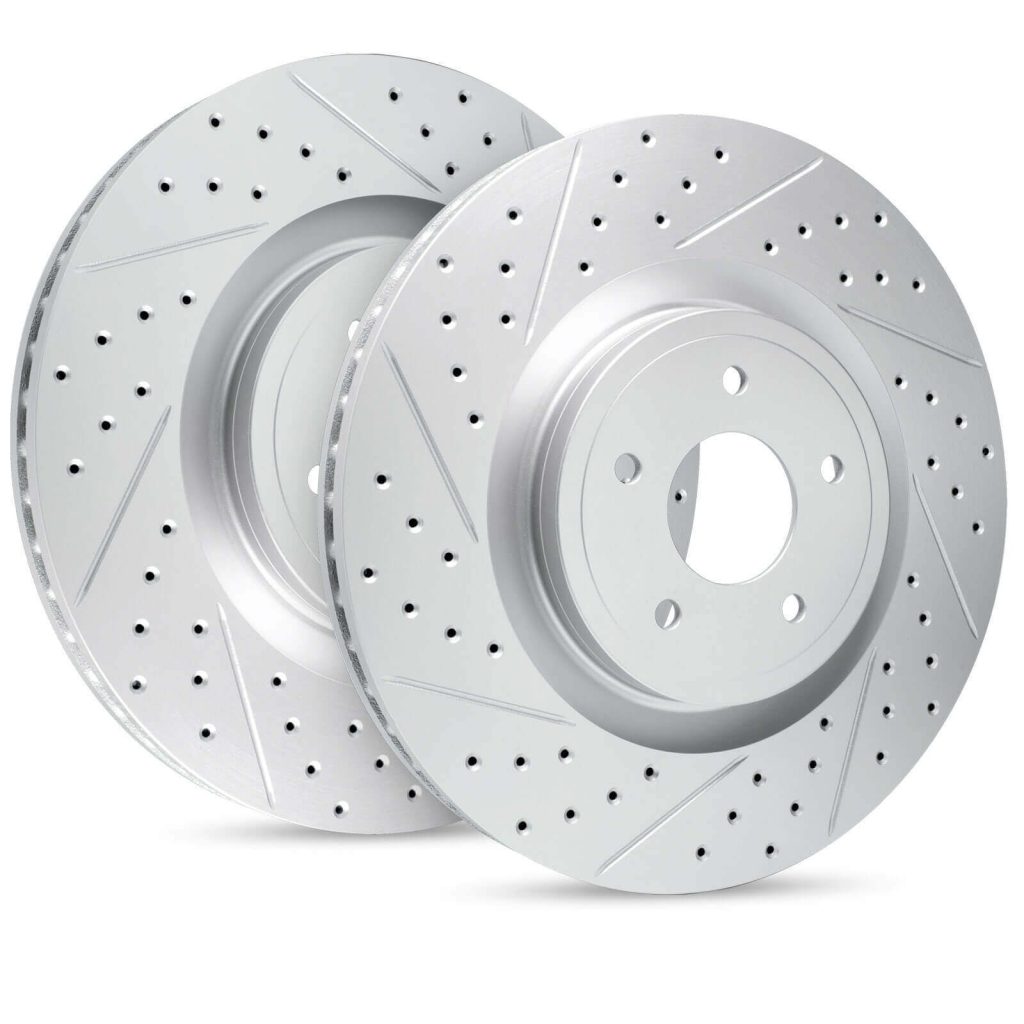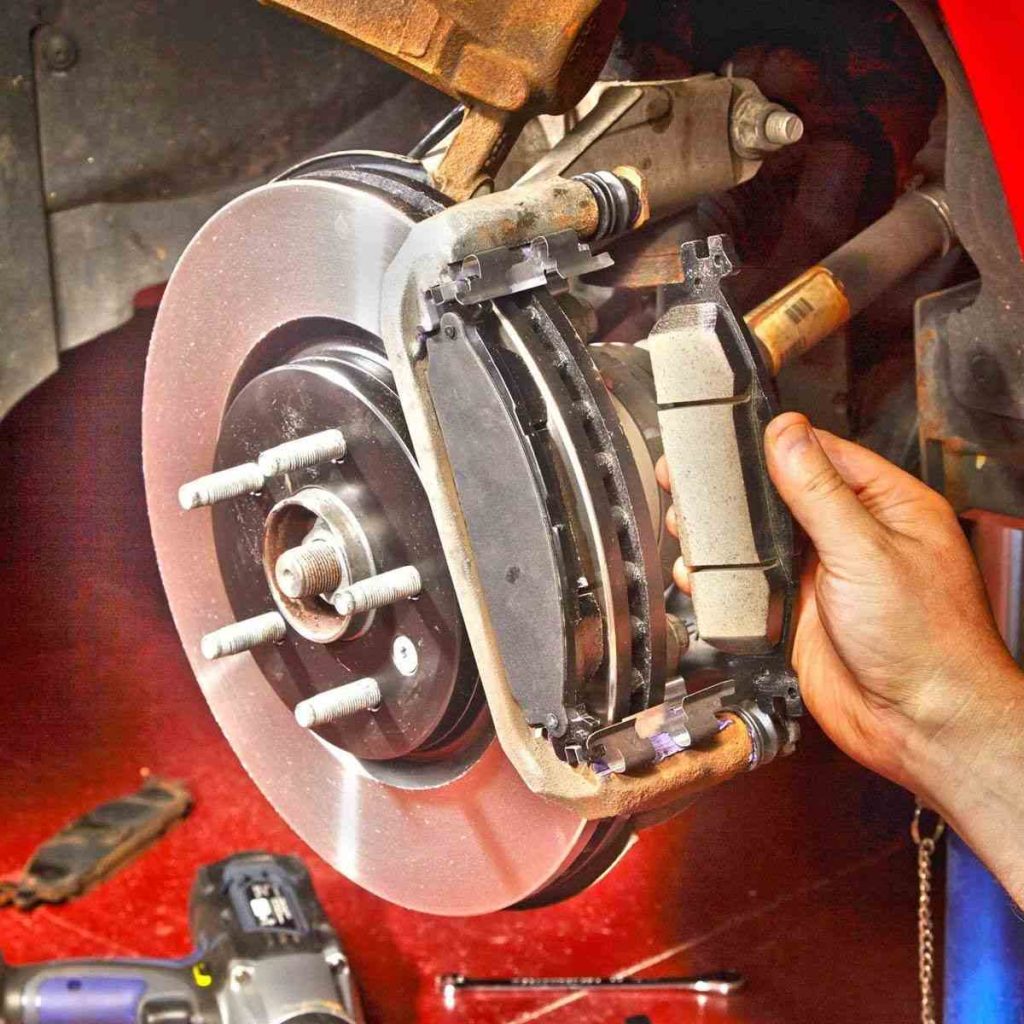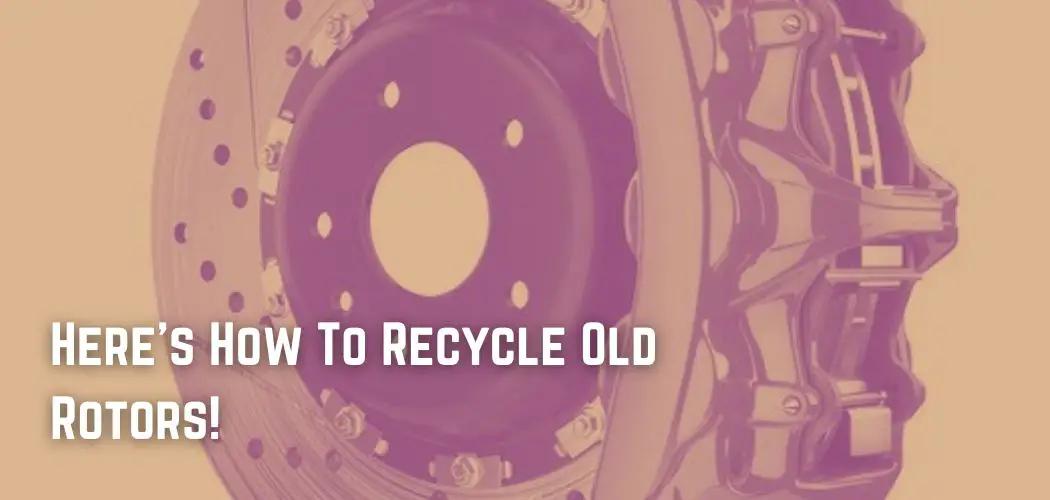Brake rotors are essential components in all vehicles. The brake rotors are iron discs linked to the tire’s hub.
They are a component of a disc brake assembly. Brake rotors and brake pads work together to stop a vehicle.
Brake rotors are less susceptible to wear than brake pads. Therefore, brake rotors do not need to be replaced as frequently as brake pads.
Eventually, though, you will need to replace the brake rotors when they get too worn to perform effectively.
Even though some new technologies allow brake rotors to be made of aluminum or other materials, the most common material for brake rotors is cast iron, which is a metal that can be recycled.
When you send in your brake rotors for recycling, scrap metal recyclers may not pay you a large check, but you should feel better knowing that you’ve kept all that heavy metal out of the landfill.
Can It Be Recycled?
Brake rotors don’t need to be changed out very often, but they weren’t made to last forever, either. Consequently, they will eventually wear out. When this occurs, they may be recycled.
Recycling brake rotors would be the most ecologically friendly method of disposal. They are quite massive metals, and if you dispose of them in the garbage, they will likely remain in landfills for decades, if not centuries.
Now, you cannot recycle your brake rotors with your home essentials. First, they are heavy metals, and their weight may irreparably harm recycling machinery.

Because they contain few hazardous substances, brake rotors do not need special recycling processes like other metal debris. You can recycle them with your other metal trash or follow the instructions of the company that takes away your trash.
Before you carry your heavy brake rotors around, you might want to check with your local recycling center to see if they have ways to recycle metal trash. However, the majority do not. Therefore, you may need to utilize alternative recycling methods.
One way to find a recycling center near you that takes brake rotors is to use a recycling locator. Next, you may collect the rotors and transport them in bulk to the recycling facility.
If you cannot find one nearby, you may contact a metal recycling firm. Those should not be difficult to locate. Simply log on to your computer and locate the nearest one.
It would be ideal if you never threw away your unused brake rotors in the garbage. When this occurs, the items wind up languishing in landfills and taking up a great deal of space.
They will ultimately fail, but it will take at least a century for this to occur. Even when decomposition does take place, the disintegrated fragments never truly disappear. They become tiny particles that persist in the environment.
Local Scrap Metal Recycling Company
Most will compensate you in some way for the brake rotors that you donate. Therefore, you must discuss this with the local representative. You will receive a few additional bucks for deciding to deliver it there.
Consider bringing additional scrap metal with you to the junkyard. You will not earn much money by giving away brake rotors on their own. Therefore, you can dispose of additional scrap metal to justify the journey.
However, make sure to ask the scrap yard if it will accept the smaller scrap metal pieces you plan to transport. Some scrap yards may not take small metal items.
In rare instances, the metal on the brake rotors may be in fine shape despite the fact that the rotors themselves are inoperable.
Consequently, you might earn more remuneration for the brake rotors you donate. The amount of money you receive from a scrap metal collection agency can vary, depending on the agency.
You may anticipate receiving around 0.70 cents per pound for the brake rotors. It may not appear to be much.
Can Your Rotors Be Reused?
Before, it was common to resurface brake rotors once or twice before replacing them. Now, this is not the norm.
Before, it was common to resurface brake rotors once or twice before replacing them. Now, this is not the norm. Even a single resurfacing can lower the rotor’s thickness to the point where it is no longer permitted to be used.
The permissible limit of a rotor is inscribed on the rotor’s side. From the appearance of your rotors, it may not appear that anything is amiss.
Your mechanic will use a brake rotor micrometer to measure the thickness of the rotor. The measurement must be accurate to the nearest hair.

In practice, the cost of labor needed to resurface a rotor frequently exceeds the cost of replacement. Resurfacing a rotor takes around 30 minutes per rotor. Labor costs for mechanics are approximately $100 per hour, and that’s on the low end.
That implies you would have to spend at least $200 to have the rotors resurfaced. You may buy a new rotor for between $40 and $70 each rotor, and you will have the peace of mind of knowing that your rotors are in excellent shape.
Avoid Junkyards
Almost all junkyards and agencies that gather scrap metal recycle brake rotors to some extent. You should not, however, contemplate giving over your brake rotors to such services.

This is due to the fact that the metals will wind up in a landfill. It will likely remain there for decades prior to beginning to decompose.
Placing metals in landfills rather than recycling them can have significant environmental effects. This is because more metal will be required to produce consumer goods.
As raw materials, it is preferable to use existing metal from brake rotors and other trash.
Conclusion
You can recycle brake rotors, but you cannot simply place them in your residential recycling bin. Contact your local scrap metal collection agency or junkyard to determine if they can scrap and recycle the metal from your brake rotors, and if so, arrange a drop-off time.
However, your brake rotors may not be recyclable if they are not made of metal.
Call around until you find a scrap yard or junkyard that will reuse the metal from your brake rotor; it will be a bit more work, but it will be worth it to know that your waste is not being disposed of irresponsibly!





